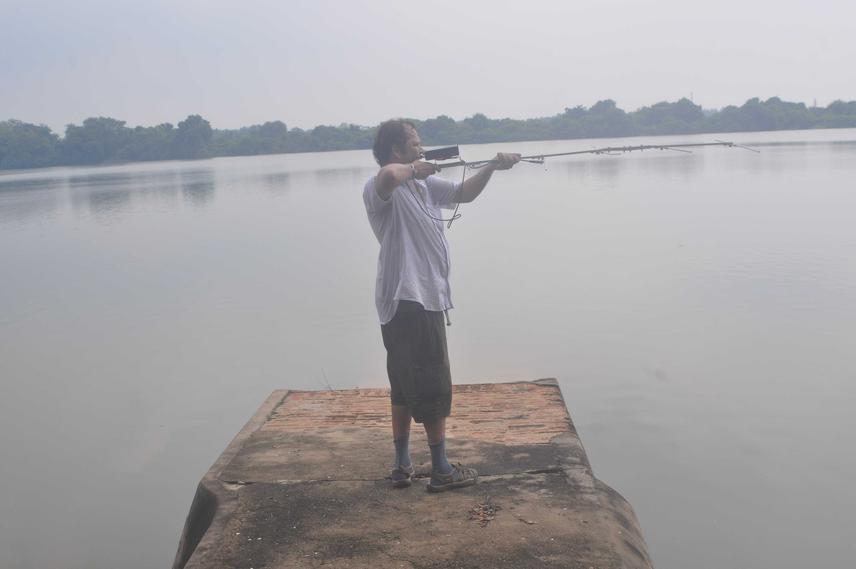Nikhil Whitaker
To understand movement of Marsh crocodiles, as part of a study on their biology, relative to dry season survival strategies, differences in home range between size classes, and assessing site fidelity of nesting and basking sites. In addition, seasonal shifts in diet will be assessed by indirect evidence, in the form of scat. To incorporate this into mitigating human crocodile conflict on the Cauvery River, Tamil Nadu. This education component will include sustainable community participation, with village heads, fisherfolk, and the general public in areas where there has been conflict. To train rescuers in the humane capture and restraint of crocodiles. In summary, the primary component of the education program is to teach people how to live alongside crocodiles.

Project manager Nikhil Whitaker searching for a mugger we finally found after 2 days
The Cauvery Delta on the south-east coast of India comprises rivers, dams, isolated water bodies, and man-made canals, a crucial source for agriculture in this region. Little of Marsh crocodile biology in the wild is known about. The level of anthropogenic disturbance, interactions between basking animals, time when entering /leaving the water, and size classes will be estimated. Marsh crocodiles have according to older residents of villages on the river note they have not seen crocodiles for at least 30 years, and often enter human habitation. Material will be developed to help educate people on the dos and don’ts around where crocodiles are. Fire Department Personnel capture and release crocodiles to other areas of this River, the outcome of these translocations is not known. Training for the rescuers will be done, incorporating best practice towards human and crocodile safety. A combination of VHF technology and education programs form the main component of this proposal.